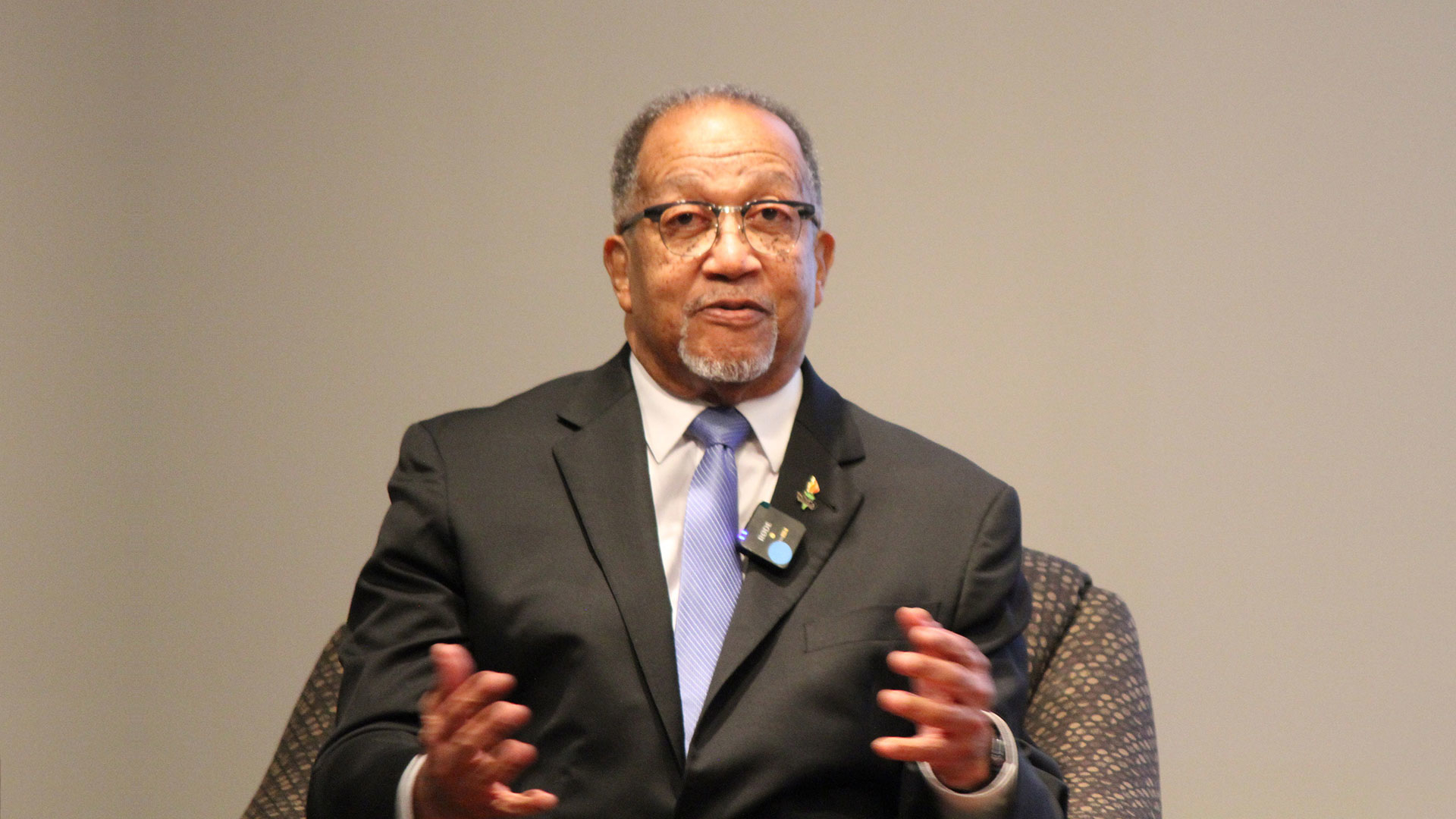
Ben Chavis told the audience at the opening night of the Civil Rights Speaker Series that's it's never too soon – or too late – to affect change.
“Prisons are constructed to break down your humanity. I take a different view. No human being oughta be pressured to give up their humanity. I don’t care what you come into prison for, no one should have to give up their humanity.”
Benjamin Chavis Jr., knew exactly what he was doing when he walked up to the librarian, book in hand, in Oxford, N.C. It was 1960 and Blacks were not allowed in the public library – let alone check out a book.
The librarian called the police, who summoned Ben’s parents. Rather than scold their son, Elisabeth and Benjamin Sr., applauded him. Later that year he became the first Black in Granville County to be issued a library card. He was 12 years old.
Ben told the story – and dozens more about his life as a civil rights leader – at the kickoff program in the Civil Rights Speaker Series at the International Civil Rights Center & Museum on Feb. 1. His talk was sponsored by Guilford College.
“I wasn’t nervous or frightened because I didn’t do anything wrong,” he told the audience. “What I do remember is that you’re never too young or too old to bring about change.”
Ben has spent the past half century affecting change across the country, but not without a price. He was a member of the Wilmington 10 — nine Black men and a White woman wrongly convicted of a 1971 firebombing at a grocery store in Wilmington, N.C. After he spent two years behind bars, sentences of Ben and the others were commuted in 1978. In 2012, Gov. Bev Perdue pardoned the group, saying the trial was infected by “naked racism.”
That was one of 34 times he has been arrested in his life as an activist. All 34 cases were eventually thrown out.
Ironically, it was during his time in prison that Ben learned how committed he was in his faith and in his humanity to others.
“Prisons are constructed to break down your humanity,” he said. “I take a different view. No human being oughta be pressured to give up their humanity. I don’t care what you come into prison for, no one should have to give up their humanity.”
Ben, who was originally sentenced to 34 years in prison for the bombing, said his Christian faith helped him during his incarceration. ”I didn’t gain faith when I went to prison. I took it in with me,” he said.
He said racism is not limited to America. “Just look at what went on in South Africa with apartheid,” he said. “Racism is very much a global issue and has to be worked on globally. It’s not going to go away on its own.”
Ben says today’s younger generation is ready for the challenge. “They’re the most gifted, the most talented, generous in years,” he said.
Asked if he would have done anything differently in his life, Chavis, who is 76, nodded. “I probably would have gotten involved trying to change things when I was six, and not 12.”

